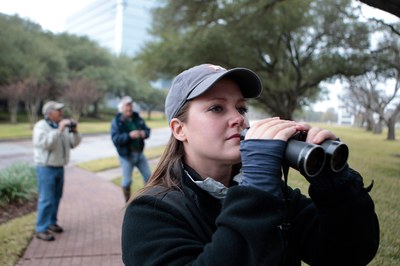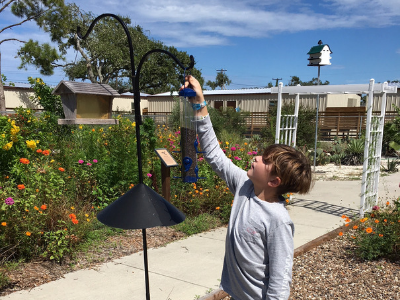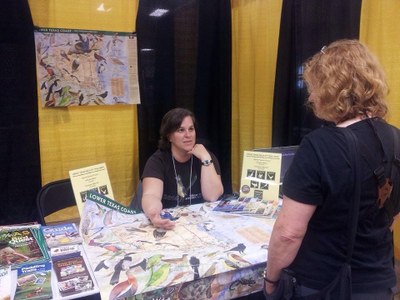On this page:
Community Engagement
Community (Citizen) Science Opportunities
Community science, more commonly known as citizen science, is the involvement of the public in scientific research. It allows volunteers and amateur naturalists to assist in data collection for scientific purposes. This data can then go on to be used by scientists around the world for a variety of reasons. Community science not only is useful for data collection, but it can also help create a knowledgeable and engaged group of active community members.
Community Science Resources:
- TPWD: Texas Nature Trackers
- D-bird - an Audubon Program and app, where community members can report bird strikes and dead bird. More information.
- Christmas Bird Count
- Audubon Climate Watch
- Great Backyard Bird Count
- Swifts Night Out
- Hummingbirds at Home
- Invaders of Texas Program
- Globe at Night

iNaturalist and eBird
Technology is making it easier for all citizens to participate in citizen science projects with just the touch of their smart phone. iNaturalist and eBird are two digital platforms that make data collection and community science engagement easy and fun. Both are accessible via mobile and desktop devices.
Environmental Education
An environmental education is valuable for all ages and grades, and it is important that it is accessible to all within a community. Students that receive an environmental education have improved academic achievement, health, focus, and cognition compared to students that do not. It also fosters healthier school and classroom environments, encourages critical thinking skills, and educates youth on sustainability, natural resources, and making a positive change in their communities.
Tools to incorporate environmental and conservation curricula into your schools:

Hosting Events
Hosting birding events and festivals in your community can take on a variety of forms. Bird counts, bioblitzes, educational workshops, traditional birding festivals, exhibitions, and photography and art competitions can all be aspects of your events. These community events have the potential to raise awareness for specific species or focus on engaging youth and others with bird conservation issues, concerns, and solutions. Furthermore, these events can positively impact the nature tourism industry in your community by bringing in individuals from around the state and globe to share in the celebration while infusing your local economy with tourism dollars.
Resources for hosting events:
